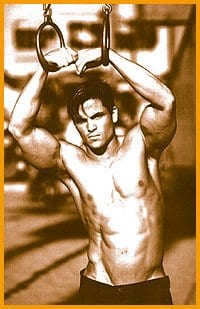In light of Todd Solondz’s previous, brilliant work (Welcome To The Dollhouse, Happiness), there is little danger in calling Storytelling, his latest effort, an unmitigated disaster – essentially, forgettable. An interesting failure? Not even.
The best thing about this film is wondering what James van der Beek looks like taking it on his hands and knees – and that’s the part that ended up on the cutting room floor.
The film consists of two stories. “Fiction” takes place at a second-rate college, where creative writing students try to please their bitter, black Pulitzer prize-winning professor with tawdry efforts at short stories. Student Vi (Selma Blair), a hip, white suburbanite, picks up the professor in a bar and they have an unpleasant, violent sexual experience fraught with blatant racist overtone. She writes the experience up and reads it to the class, much to the dismay of her prim, PC fellow students and the somewhat sadistic pleasure of the prof. Now she’s getting somewhere as a writer.
“Non-fiction” features a suburban, dysfunctional, Jewish family who can’t quite seem to recognize where the American dream has failed them. Teenage angst and the nastiness of children abound. Meanwhile, a dopey-but-eager documentary filmmaker begins to chronicle the pothead oldest son’s attempts to get into college, in order to expose the kind of stress that affects the high-school kids of today.
Solondz displays his customary wit, especially with regard to the insidious ways that families, especially suburban American families, operate. There are attempts to simplify the world to avoid thinking about it. Mom’s (the ever-brilliant Julie Hagerty) twisted logic leads her to suggest sweetly that those who might have been Hitler’s victims but escaped before the Holocaust are survivors too – an idea that dangerously equates the psychic weight of understanding the Holocaust and that of experiencing it. Meanwhile, Dad (John Goodman) just plain thinks that college is a great experience and doesn’t understand why he shouldn’t pull some strings to get his kid into Princeton.
Perhaps most horrifying is the youngest son’s brutal treatment of the family’s maid (Lupe Ontiveros). He has no concept of what it means to be poor and even less of an understanding of the notion of being from El Salvador. At eight or so, he has no notion of anything outside himself: a completely indoctrinated Jersey suburbanite.
Despite some great performances (Solondz remains a great director of actors), and a single shot that brilliantly skewers American Beauty, Storytelling falls flat – its ironies are obvious, its intentions trite. The film tries to explore exploitation and the dangers of reducing the complex to the straightforward. But it lacks oomph; the pedestrian analysis inspires no contemplation.
Worst of all, you start to believe that maybe this time around, the director has lost his hallmark – careful respect for his characters. And that’s just sloppy.
See this film if you’re a complete-ist. Otherwise, rent Happiness again.
Storytelling opens Fri, Feb 15 at the Cumberland (159 Cumberland St); call (416) 699-5971.
Showcase TV broadcasts Happiness at 10pm on Sat, Feb 16 and Welcome To The Dollhouse at 11pm on Feb 17.

 Why you can trust Xtra
Why you can trust Xtra


